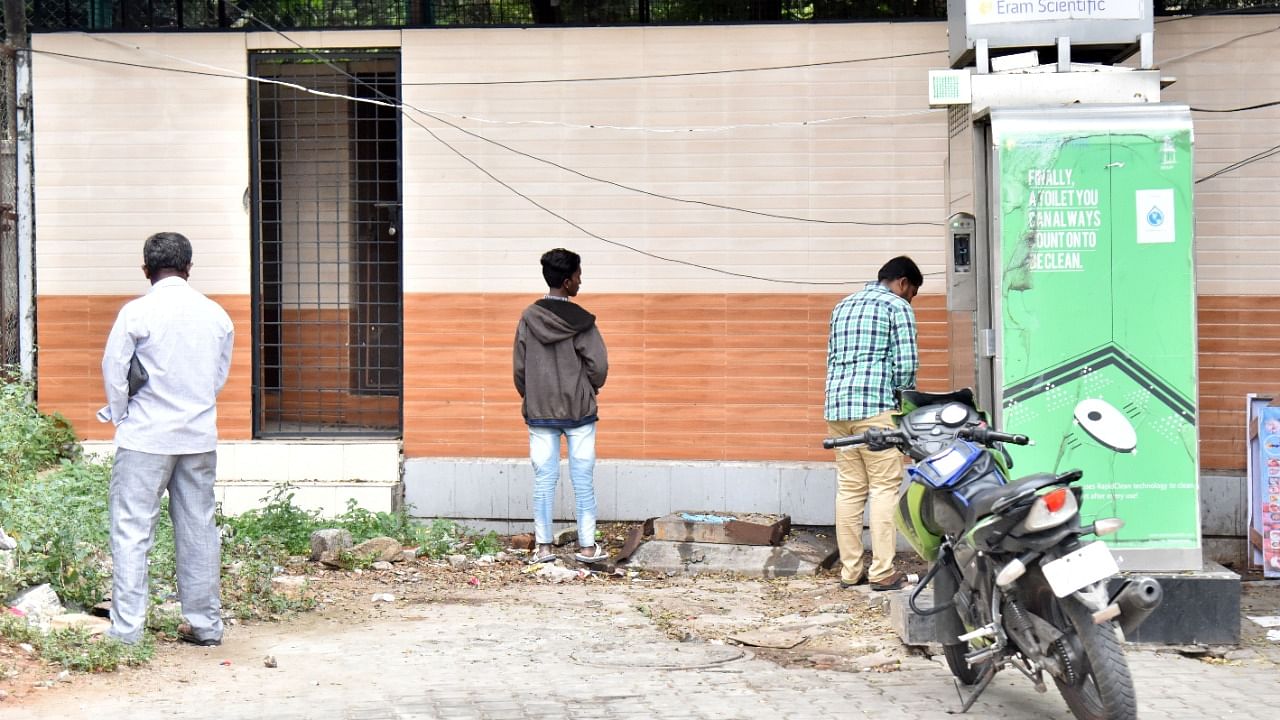
A report on the sanitation plan for Bengaluru has stated that the proportion of toilets in the city, declared open defecation-free in January 2020, is low when compared to other metropolitan cities.
The report by the All India Institute of Local Self Government was submitted before the High Court by the Bruhat Bengaluru Mahanagara Palike (BBMP).
The BBMP had appointed the agency in order to ascertain the number of public privies required to be set up in the city. The report said the availability of toilets per sq km area, toilets per ward and per 1,000 population is low in Bengaluru when compared to cities like Chennai, Hyderabad and Ahmedabad.
The report said that slums require more community toilets and highlighted the poor state of maintenance that has affected the usability of the toilets.
The report quoted the Swachh City Plan, which estimated that the floating population will grow at a rate of 15 per cent in the city. It said using this estimate and population projections of the BWSSB, toilets are required to be constructed mainly at marketplaces, bus and railway stations, public places and in commercial areas where there is floating population.
A division bench headed by Chief Justice Abhay Shreeniwas Oka observed that though the agency appointed by the BBMP has not done the exercise of a ward-wise requirement of toilets, it has highlighted certain key findings. These issues require the immediate attention of the authorities, the bench said.
The court directed the BBMP to state the steps taken to take care of the issues highlighted in the report as well as the directions passed by the court regarding the poor maintenance of community toilets.
The court also directed the BBMP to deal with the issue of lack of availability of proper data on toilets. The BBMP has been directed to file a report on or before August 13.
“Needless to add, in the meanwhile, the BBMP is bound to take necessary steps. The BBMP shall also take steps for the implementation of recommendations in the report,” the court said.
The petition, filed by Letzkit Foundation, relied upon the provisions of Section 245 of the Karnataka Municipal Corporations Act, 1976.